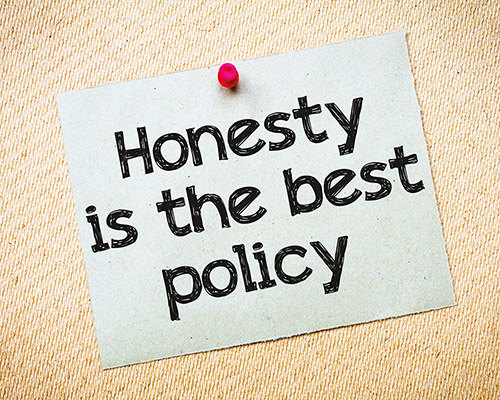
My great-uncle Meyer Thurm, z”l, was known for his caring heart, tzedakah and his honesty. His yahrzeit was a few weeks ago and I was reminded of a story I heard at his levaya. He owned a company with some large clients. One time he received a very large overpayment for an order from a large company in which the error would not have been noticed and the money would not have been missed. When his secretary informed my uncle of the error, he immediately called his customer to notify them of the error. They were speechless. “Meyer, why are you telling us this? You could have kept the money and no one would have known!” My uncle replied, “Because I am a Jew and that’s what we are supposed to do.”
Being honest in business is a constant challenge. In the last few pesukim of Ki Teitzei, the Torah instructs to remember Amalek and what he did to the Jews. Prior to this, the parsha mentions the mitzvah of keeping honest weights and measures. Rashi quotes the Midrash Tanchuma, which explains the connection between the two. Hashem lets Amalek attack…as a punishment for the Jews’ crime of having used dishonest weights for commerce that took place in their travels in the desert.
Amalek’s attack is also found in Parshas Beshalach. There, the topic immediately prior discusses klal Yisrael questioning Hashem’s involvement in their lives. They asked, “Hayeish Hashem b’kirbainu—is Hashem in our midst?” Rashi quotes the Midrash Tanchuma, which explains the link between the two: If someone has doubts regarding emunah (faith), then Hashem sends an enemy to attack, forcing us to call out for Hashem’s help. It’s a reminder that we need Hashem’s protection at all times, not just when we are attacked.
So what’s the reason for Amalek’s attack—dishonest weights or a lack of emunah? Rabbi Shimon Schwab explains that both are rooted in the same issue. If we feel the need to cheat in business, then clearly we do not believe that Hashem is in full control of everything, including our livelihood. Emunah encompasses everything; it does not just apply in times of battle.
The Maharal gives a deep insight into the correlation of the attack from the enemy as a punishment for dishonesty in business. Hashem created the world with each item and person having a unique role and place. A person who is dishonest is attempting to take away the money designated for someone else. This constitutes encroaching on someone else’s space. As a punishment, Hashem sends the enemy into our space, where they don’t belong.
On Rosh Hashanah Hashem decides a person’s income for the coming year. No one can take away even a penny that is supposed to be ours. Earning a living has many challenges. Often there are gray areas and it is easy to justify taking an action for a questionable gain. Perhaps this involves taking away another person’s client, including an extra fee in a bill or claiming a personal expense for the business to reimburse.
People seek brachos for parnasa (livelihood) and other good things in their lives. Rav Yitzchak Kolodestky often says the greatest way to achieve bracha is to bring Hashem into our daily lives. “If the Shechina is there, then there is bracha. And if the Shechina is not there, then there is no bracha.”
In two weeks we will be standing before Hashem on Rosh Hashanah and our fate, our income and even our very lives will be decided! It’s easier to feel Hashem’s control on Rosh Hashanah; the challenge is to live with the concept of Rosh Hashanah in our day-to-day actions and interactions.
Living with the reality of Hashem’s control changes our entire mode of business. It will invite Hashem into our business dealings, which will bring greater blessing. May Hashem give us the wisdom and the strength to recognize daily challenges when we might be tempted to compromise to achieve some kind of advantage, and help us do what is honest and just at all times.
Rabbi Baruch Bodenheim is the associate rosh yeshiva of Passaic Torah Institute (PTI)/Yeshiva Ner Boruch, where he leads a multi-level Gemara-learning program. PTI has attracted adult Jews of all ages from all over northern New Jersey for its learning programs. Fees are not charged but any contributions are always welcome. Beyond PTI, Rabbi Bodenheim conducts a weekly beis midrash program with chavrusa learning in Livingston plus a monthly group in West Caldwell. Rabbi Bodenheim can be reached at [email protected]. For more info about PTI and its Torah classes, visit www.pti.shulcloud.com.












